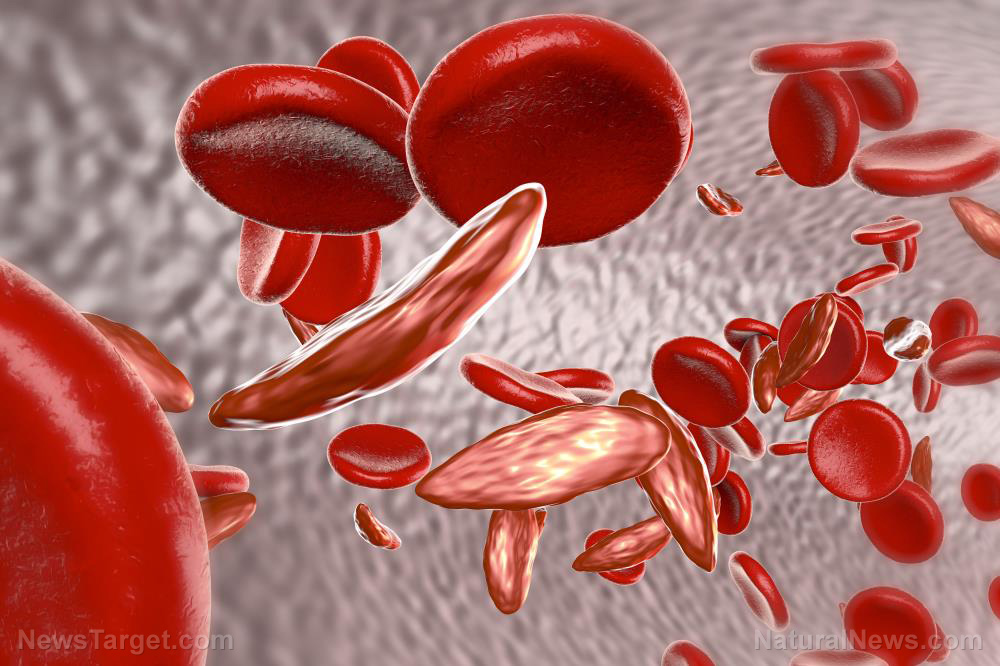Folate (vitamin B9) deficiency anemia: Causes, symptoms, risk factors, treatment and prevention
12/09/2019 / By Darnel Fernandez

Folate, often referred to as folic acid or vitamin B9, is an essential nutrient found in many green leafy vegetables and fresh fruits. It plays a critical role in various bodily processes, such as producing red blood cells, as well as creating and repairing DNA. Not getting enough folate could lead to unwanted health complications, one of which is folate-deficiency anemia.
What is folate deficiency anemia?
Not having enough folate in your body leads to anemia, a condition wherein the body cannot create a sufficient number of red blood cells. This condition deprives your organs and tissues of the oxygen they need because red blood cells are responsible for transporting oxygen throughout the body. (Related: A folate deficiency puts you at risk of several diseases, research finds.)
Low levels of folate in the blood can also lead to a condition known as megaloblastic anemia. In this condition, the red blood cells are significantly larger than usual and there are fewer of them. These cells also don’t live as long as normal blood cells.
Causes
Folate deficiency is often caused by not consuming enough foods that contain folate. Diets that are low in vegetables, fortified cereals and fresh fruits can easily make your folate levels drop in only a few weeks. Also, overcooking can destroy the vitamins stored in the food. However, even those who eat balanced diets have the potential of developing folate deficiency. Here are a few other causes of folate deficiency anemia:
- Being pregnant, which increases the demand for folate for both mother and baby
- Drinking too much alcohol
- Having certain diseases that mess with vitamin absorption such as celiac disease
- Taking certain medications that interfere with folic acid absorption
Folate, like all B-vitamins, is water-soluble, meaning it dissolves in water and the body cannot store it in fat cells. Because of this, the body needs a constant supply of folate as it can’t develop a reserve. As a result, people could develop a deficiency quickly if they don’t eat enough folate-rich foods or they have an underlying condition that affects their absorption.
Folate deficiency is much more common in older people, affecting one in 10 people aged 75 and above. People between the ages of 65 and 74 have a one in 20 chance of being affected by this deficiency.
Symptoms
On its own, folate deficiency’s symptoms are very subtle. If you aren’t getting enough vitamin B9, you could experience the following symptoms:
- Gray hair
- Mouth sores
- Growth problems
- Tongue swelling
However, the symptoms of folate-deficiency anemia may be similar to other blood conditions or health problems. These include persistent fatigue, weakness, lightheadedness and irritability. It is essential to see a healthcare professional for a proper diagnosis.
Treatment and prevention
People who already have folate-deficiency anemia may need to increase their dietary intake of folic acid, whether it’s through their actual diet or supplementation. Pregnant women, in particular, should avoid drinking alcohol before and during pregnancy to reduce the risk of folate deficiency. They should also make sure to meet their folic acid requirements to prevent pregnancy complications for the fetus, like brain abnormalities or low birth weight.
If you wish to prevent this condition altogether, eating a healthful diet packed with folate-rich foods like Brussels sprouts, avocado and spinach would be sufficient to maintain your daily folic acid needs. The recommended amount of folate needed is 400 micrograms per day.
Sources include:
Submit a correction >>
Tagged Under:
anemia, Diets, disease causes, folate deficiency, folic acid, natural treatment, prevention, red blood cells, supplements, vitamin B9, women's health
This article may contain statements that reflect the opinion of the author






















